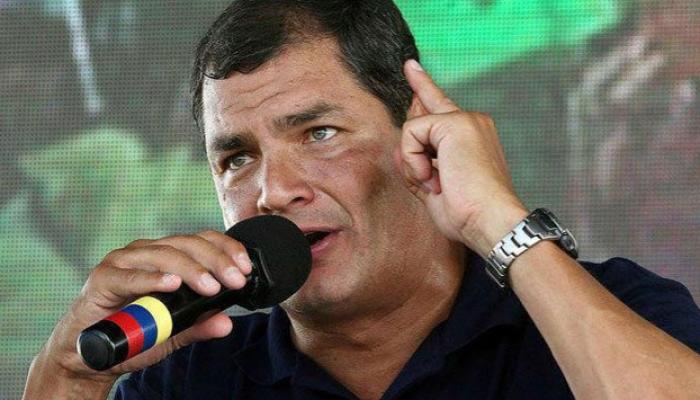Quito, April 30 (Xinhua-RHC) -- In Quito on Tuesday Ecuadorian President, Rafael Correa, said it was wrong to paint him as anti-American despite his order to reduce the presence of U.S. military personnel in his country.
"I have lived and studied in the United States, a country that I love very much," Correa said, but he added it was another thing to ignore the impropriety of U.S. policy in Latin America and to negate history.
"What we cannot accept is to have a foreign military group on (our) national soil," he told reporters. The Ecuadorian president said critics wanted to paint him as anti-American after he ordered the reduction of U.S. military personnel in Quito.
The president called for more "transparent cooperation" with the United States, saying Ecuador welcomes "transparent cooperation of mutual benefit, or at least of benefit to the country that receives the cooperation."
Correa noted that one had to be extremely careful with cooperation because such cooperation often served certain unacceptable policies of interference in a sovereign country in Latin America in the 21st century.
In January, Ecuador expressed its concerns about a beefed up U.S. military presence at the U.S. embassy in Quito.
According to a U.S. embassy spokesman, on April 7 Ecuador formally requested the embassy to scale back its staff at the Office for Security Co-operation by the end of the month.
The president, who had described the size of the military staff as "scandalous," said the group originally numbered about 50, but was gradually whittled down to 20 after several talks between representatives of the two governments.
The 20-member group preparing to leave by the April 30 deadline includes both military and civilian personnel that provides assistance in such areas as logistics, aircraft maintenance, and the strengthening of Ecuador's defense capabilities, Pentagon spokesman, Steven Warren, disclosed.
Ecuadorian Foreign Minister, Ricardo Patiño, stressed that the excess staff was not being expelled, and the two governments had reached an amicable agreement on reducing the U.S. military presence here.
In addition, the staff was not diplomatic, "but part of the U.S. Department of Defense," and maintained unauthorized direct ties with the Ecuadorian Armed Forces and police forces, said Patino.
"We are interested in bolstering the relationship with the United States, but a relationship based on respect, and with cooperation that is not imposed," said Patino. "That has to be made very clear."


